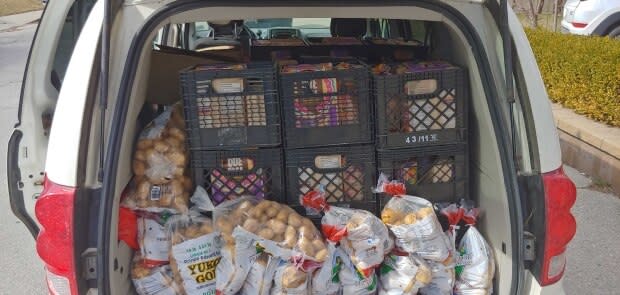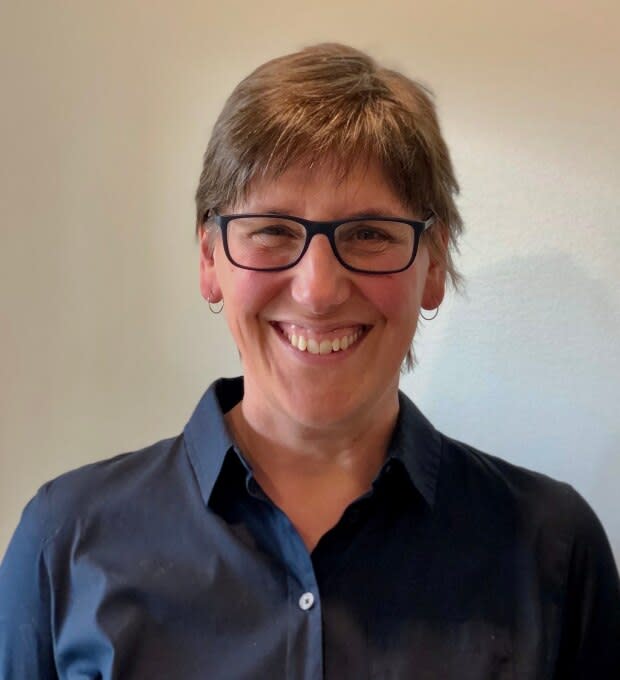Screening for COVID-19 should also include questions about food insecurity, volunteer organizations say
Measures to contain COVID-19 are hitting the city's low income populations hard, particularly in the city's highrise buildings, where directives to physically distance are making food insecurity worse, say grassroots volunteer organizations.
"There're a lot of people that actually have no food because they usually depend on the food bank," said Sharon Asamoah, who lives in a highrise near Warden Woods. "You know, the little food I have here I just had to share it. I gave them a little."
Asamoah, 56, was lucky enough to get help from the Scarborough Food Security Initiative, which dropped off food donations at her building.
"The only food bank that we have in this community, the Bluffs Food Bank, has shut down indefinitely until this crisis is over," said Suman Roy, a member of the Board of Directors of Food Share Toronto. "What that meant was at least 350 families who were using that service now have no food available from there."
Roy said there needs to be a coordinated response or action plan to deal with the rise in hunger caused by COVID-19 as much of the food security infrastructure shuts down.

He said one of his volunteers, who dropped off food donations to highrises along Warden Avenue, reported seeing hundreds of residents gathered waiting.
"She had to run away leaving the bags because she was really scared by that many people coming into very close contact."
Roy said without support, hungry people will eventually break the public health directive to physically distance, as they look for food, which will defeat measures to stop the transmission of disease.
He said food delivery solutions must be found for them too, not just for the people who can afford to order online.
"Our biggest challenge right now is how can we support these highrise buildings where the need is tremendous."
And he adds that health-care providers at COVID-19 assessment centres and other care settings should be screening people for social needs, and referring them to social supports for food and shelter.
"There should be questions asked right then and there about how they are getting their food, are they OK for food or OK for emergency funds, because if you're sending them home in self isolation, how are they being supported?"

Dr. Jennifer Rayner, director of research and evaluation for the Alliance for Healthier Communities, agrees. The organization supports hundreds of community-run primary health-care providers across Ontario.
"That physician or nurse practitioner who's seeing people for their physical needs also looks at identifying people who might be at risk for their social needs and then making the appropriate action as a result of that," she said.
Rayner has been surveying their members' primary care providers and most identify food security among patients as an issue, but that's not all.
"I think absolutely people should be screened for food insecurity, but also isolation. Isolation is such a huge issue right now. We're telling people to physically distance, but try to keep socially connected. That's sometimes easier said than done."
But she says it doesn't stop at asking the person being screened: "Are you hungry?"
"Screening isn't enough. You need to then have a response so how are you going to help a person. You can't just ask if you don't have the solutions."
Rayner said the province has committed $200 million in social services relief funding to help protect the health and safety of the most vulnerable people.
"Hopefully when that money gets down to the municipalities it will get actioned and help solve the problems of food and shelter, because I think we are just at the tip of the iceberg."
Toronto Public Health did not respond to CBC Toronto's request for comment.


